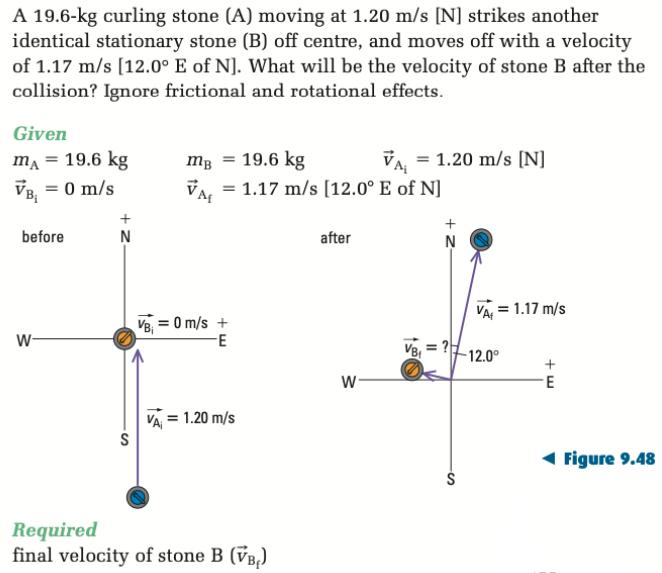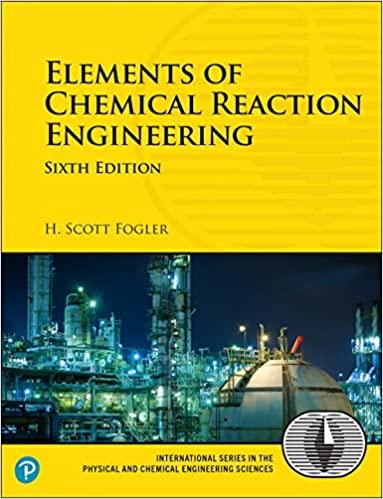Question
A 19.6-kg curling stone (A) moving at 1.20 m/s [N] strikes another identical stationary stone (B) off centre, and moves off with a velocity

A 19.6-kg curling stone (A) moving at 1.20 m/s [N] strikes another identical stationary stone (B) off centre, and moves off with a velocity of 1.17 m/s [12.0 E of N]. What will be the velocity of stone B after the collision? Ignore frictional and rotational effects. Given m = 19.6 kg VB = 0 m/s mB = 19.6 kg VA = 1.20 m/s [N] VAL 1.17 m/s [12.0 E of N] + before N after N W S VB = 0 m/s + -E VA = 1.20 m/s Required final velocity of stone B (VB) VA = 1.17 m/s VB 12.0 + W E m+ S Figure 9.48
Step by Step Solution
There are 3 Steps involved in it
Step: 1
Lets denote vBf to be the velocity of mass B after collision ...
Get Instant Access to Expert-Tailored Solutions
See step-by-step solutions with expert insights and AI powered tools for academic success
Step: 2

Step: 3

Ace Your Homework with AI
Get the answers you need in no time with our AI-driven, step-by-step assistance
Get StartedRecommended Textbook for
Elements Of Chemical Reaction Engineering
Authors: H. Fogler
6th Edition
013548622X, 978-0135486221
Students also viewed these Physics questions
Question
Answered: 1 week ago
Question
Answered: 1 week ago
Question
Answered: 1 week ago
Question
Answered: 1 week ago
Question
Answered: 1 week ago
Question
Answered: 1 week ago
Question
Answered: 1 week ago
Question
Answered: 1 week ago
Question
Answered: 1 week ago
Question
Answered: 1 week ago
Question
Answered: 1 week ago
Question
Answered: 1 week ago
Question
Answered: 1 week ago
Question
Answered: 1 week ago
Question
Answered: 1 week ago
Question
Answered: 1 week ago
Question
Answered: 1 week ago
Question
Answered: 1 week ago
Question
Answered: 1 week ago
Question
Answered: 1 week ago
Question
Answered: 1 week ago
Question
Answered: 1 week ago
View Answer in SolutionInn App



